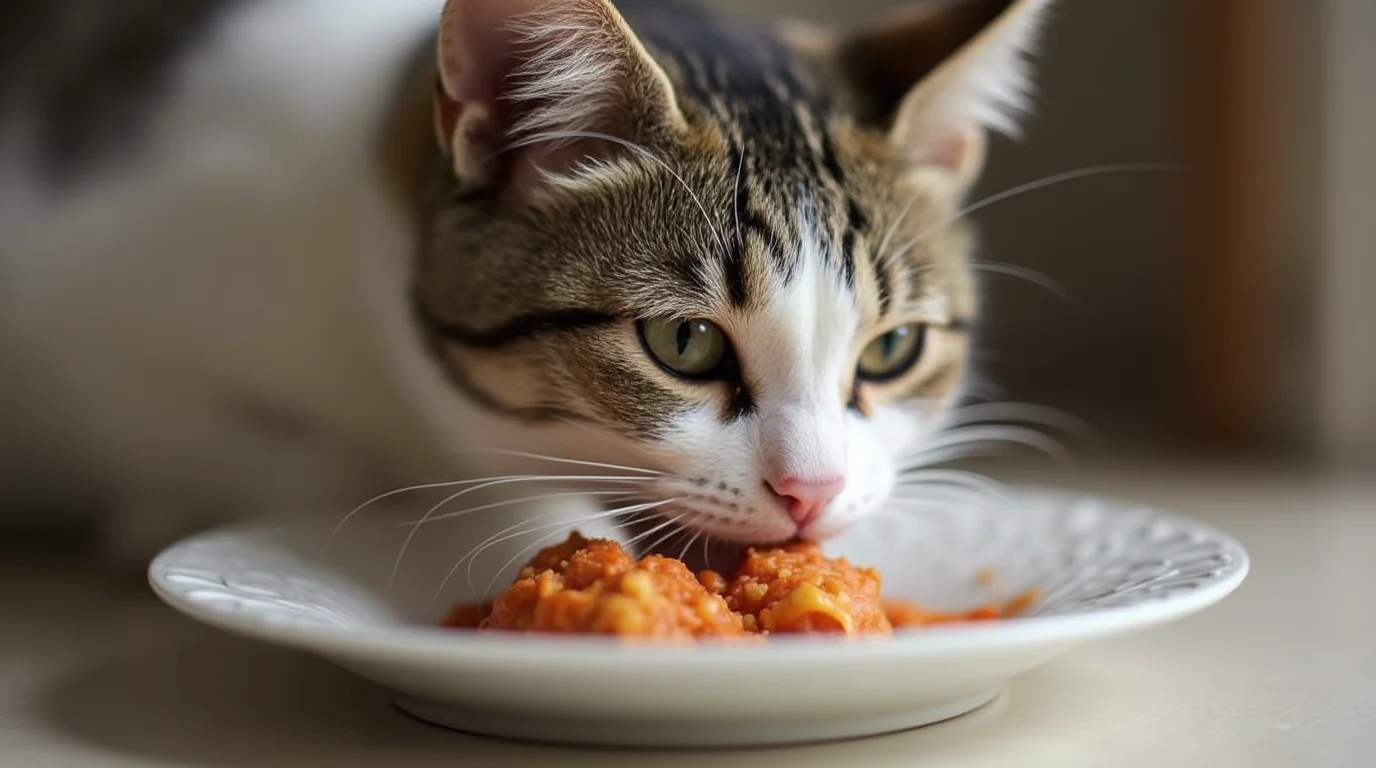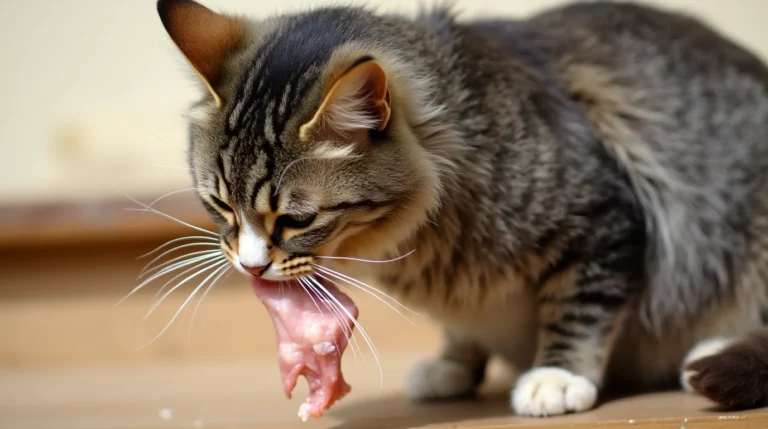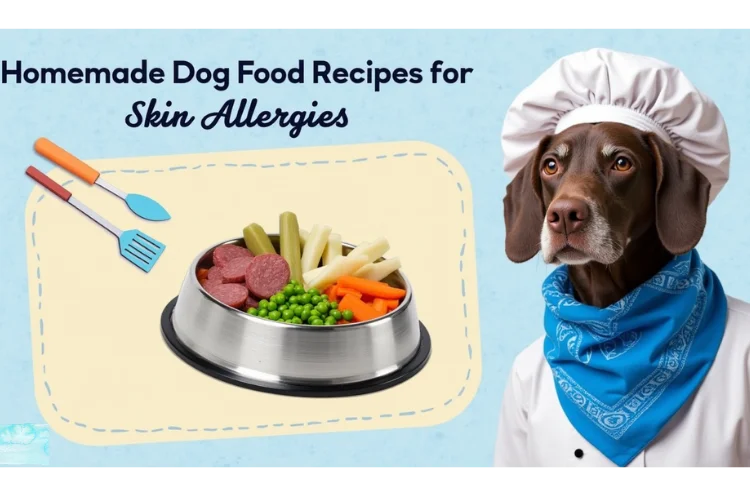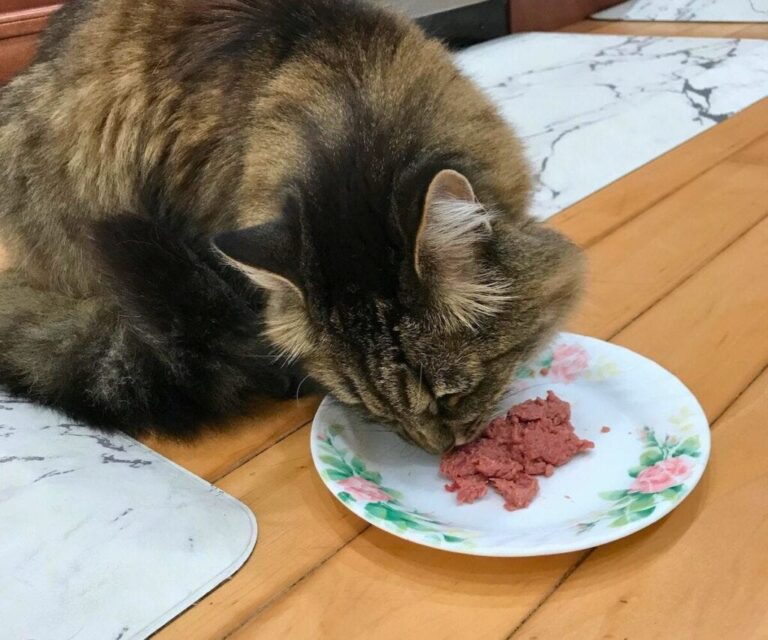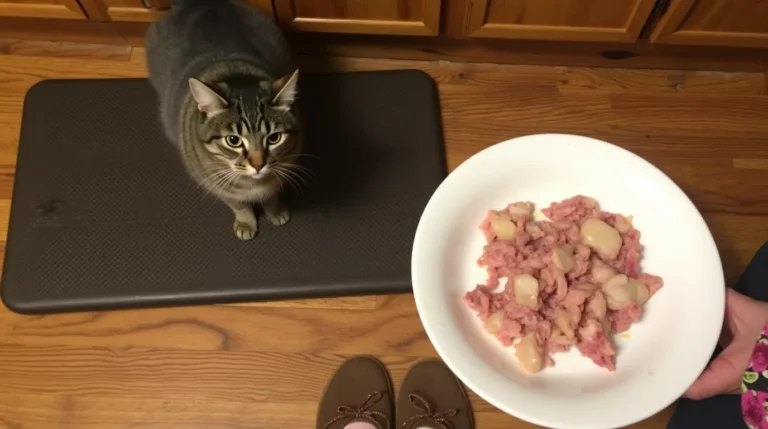In This Articale
Homemade Cat Food for Cats with Allergies
Food allergies in cats can cause skin problems, digestive issues, and overall discomfort. If your cat has food allergies, making homemade cat food can help. It can remove allergens and give a healthier diet.
In this guide, you will learn about the best homemade cat food recipes for cats with allergies. You will also learn which ingredients to avoid. Plus, there are tips to help you ensure a balanced diet for your cat.
Understanding Food Allergies in Cats
Food allergies occur when a cat’s immune system overreacts to certain ingredients. Common symptoms include:
✅ Itchy skin (especially around the face, ears, and paws)
✅ Frequent ear infections
✅ Vomiting or diarrhea
✅ Excessive licking or scratching
✅ Hair loss or skin inflammation
If you think your cat has food allergies, talk to your veterinarian. They can help find the triggers and suggest the best diet plan.
Common Food Allergens in Cats
Some of the most common ingredients that trigger allergies in cats include:
❌ Chicken – One of the most common protein allergens.
❌ Beef – Some cats develop an intolerance to red meats.
❌ Dairy – Many cats are lactose intolerant.
❌ Grains (Wheat, Corn, Soy) – Cats don’t need grains, and some may be allergic.
❌ Fish – Surprisingly, some cats are allergic to fish-based diets.
❌ Artificial Additives – Preservatives, colors, and flavor enhancers can cause allergic reactions.
By making homemade cat food, you can eliminate these allergens and tailor the diet to your cat’s specific needs.
Benefits of Homemade Cat Food for Allergic Cats
Making cat food at home provides several advantages:
✔ Control Over Ingredients – Ensure your cat isn’t eating allergens.
✔ Higher Nutritional Value – Fresh ingredients without fillers or preservatives.
✔ Easier Digestion – No artificial ingredients that upset your cat’s stomach.
✔ Cost-Effective – Avoid expensive prescription allergy diets.
Essential Nutrients for a Balanced Cat Diet
To keep your homemade cat food nutritious, include:
- High-Quality Protein – Turkey, rabbit, duck, lamb, or venison.
- Healthy Fats – Salmon oil, olive oil, or flaxseed oil.
- Taurine – Essential for heart health (found in animal-based proteins).
- Vitamins & Minerals – Calcium, phosphorus, and essential vitamins.
- Fiber – Pumpkin or sweet potatoes for digestive health.
Homemade Cat Food Recipes for Cats with Allergies
1. Turkey & Pumpkin Recipe (Grain-Free, Chicken-Free)
This recipe is perfect for cats allergic to chicken or grains.
Ingredients:
- 1 lb ground turkey
- ½ cup pumpkin puree
- 1 tsp salmon oil (for omega-3)
- ½ tsp taurine supplement
- ½ cup water
Instructions:
- Cook the turkey in a pan over low heat until fully cooked.
- Mix in the pumpkin puree and salmon oil.
- Let it cool, then add taurine supplement.
- Blend until it reaches a soft consistency.
- Store in the refrigerator and serve fresh.
2. Rabbit & Sweet Potato Recipe (Hypoallergenic & Easy to Digest)
Rabbit is a novel protein that is less likely to cause allergic reactions.
Ingredients:
- 1 lb rabbit meat (cooked & deboned)
- ½ cup mashed sweet potatoes
- 1 tsp olive oil
- ½ tsp taurine supplement
- ½ cup water
Instructions:
- Cook and shred the rabbit meat.
- Mix it with mashed sweet potatoes and olive oil.
- Let it cool before adding taurine.
- Blend with water to create a smooth texture.
- Serve fresh or freeze for later.
3. Duck & Pea Recipe (Grain-Free & Novel Protein Source)
Ingredients:
- 1 lb cooked duck meat
- ½ cup peas (mashed)
- 1 tsp flaxseed oil
- ½ tsp taurine supplement
- ½ cup water
Instructions:
- Cook and shred the duck meat.
- Mix with mashed peas and flaxseed oil.
- Let it cool before adding taurine.
- Blend to desired texture and serve fresh.
How to Transition Your Cat to Homemade Food
Switching to homemade food should be done gradually:
📅 Day 1-2: Mix 25% homemade food with 75% of the old diet.
📅 Day 3-4: Increase to 50% homemade food and 50% old diet.
📅 Day 5-6: Mix 75% homemade food with 25% old diet.
📅 Day 7+: Fully transition to homemade food.
Monitor your cat for digestive issues or allergic reactions during the transition.
FAQs About Homemade Cat Food for Cats with Allergies
1. Can I feed my cat raw homemade food?
Yes, but raw diets require careful preparation to prevent bacterial contamination and ensure proper nutrient balance. Consult your vet before starting a raw diet.
2. Do I need to add supplements to homemade cat food?
Yes, cats need taurine, calcium, and essential vitamins to stay healthy. Consult your vet for the right supplement recommendations.
3. How do I store homemade cat food?
Store fresh meals in the refrigerator for up to 3 days or freeze portions for up to 3 months.
4. Can I use fish in homemade cat food?
Fish can be an allergen for some cats. If your cat is not allergic, use small amounts of cooked fish as a supplement rather than a main protein source.
5. What is the best protein for cats with food allergies?
Novel proteins like rabbit, duck, venison, or turkey are less likely to trigger allergies.
Final Thoughts: Is Homemade Cat Food Best for Cats with Allergies?
Homemade cat food is an excellent option for cats with allergies because it eliminates common allergens and artificial additives. By choosing new proteins, grain-free ingredients, and important nutrients, you can make a safe and healthy diet for your cat.
Always talk to your veterinarian before changing your cat’s diet. This will help make sure it meets their nutritional needs.
By switching to homemade food, you can help your allergic cat live a healthier, happier life!

